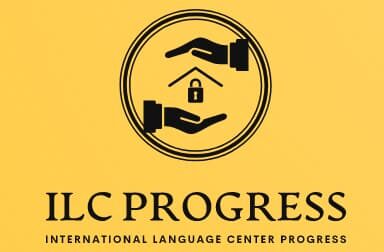We train professional translators in the socio-economic, legal and humanities fields. A team of expert teachers, intensive methods and a results-oriented approach. Linguistic education, mastery of modern translation technologies, and an understanding of the cultures of the English and Russian-speaking world will allow you to work successfully in international organizations and abroad.
Duration – 14 months
Course Format – Online
Principles of learning:
- Effectiveness. The program is built on modern educational technologies: problem-based, project-based and blended learning. Project work allows you to successfully master the necessary technologies and translation tools. Synthesis of face-to-face learning and distance support helps to master the necessary information effectively.
- Intensive translation practice. The program focuses on immersion in the world of translation, theory and practice. Trainees practice interpreting and translation skills on the basis of actual texts/cases/situations.
- Intensive language practice. Experienced tutors help you improve your language skills and orientate yourself towards working with texts (oral and written).
- Workshops. Trainees attend free workshops with successful translators, philologists and linguists.
- Online support. A convenient electronic educational environment provides constant access to study materials (lecture materials, texts and practice assignments, additional materials on the subject) and the opportunity to ask questions of the instructors 24/7.
For whom
- Unit managers, personal assistants, HR specialists, lawyers, analysts
- university students and graduates with an interest in professional translation
- practicing translators
Learning outcomes
At the end of the training you will be able to:
- Work as an interpreter (in the field of interpretation and translation)
- use modern interpretation technologies and special knowledge
- have professional command of Russian and English
- effectively organize interlingual and intercultural communication use translation dictionaries and databases
Training format
Total hours: 1020 hours
Eligibility: Language testing. English level B2 (Intermediate, CEFR) or higher.
Format of teaching: online
Group size: standard group size 15 people
Language: English
Final exam: Qualifying exam
Mode of classes: 3 times a week online, 6:00 p.m. – 21.00
Training program
Introduction to Linguistics
Linguistics provides an introduction to languages (all existing languages, those that have ever existed and those that may arise in the future) and an understanding of human language in general. For translators this discipline creates a theoretical foundation and allows you to begin studying the following theoretical disciplines of the translation training cycle.
Lexicology
Lexicology is a branch of linguistics that studies the vocabulary of a language, or lexicon. The translator gets acquainted with the word and its meaning, the system of relationships between words, the history of formation of modern vocabulary and functional and stylistic differences of words in different (including professional) spheres of speech.
Teretical Grammar of the English Language
The course “Teretical grammar of the English language” forms in future translators an idea of the systemic nature of language, teaches a multidimensional, multilateral understanding of linguistic phenomena, forms the ability to draw conclusions and generalizations from observations of the facts of language.
Practical English Language Course
Translation Theory
The objectives of the course include the formation of knowledge about the basic concepts of the theory of translation, the various existing concepts, approaches, problems in the theory of translation.
Formation of an idea of the specificity of translation as a special type of speech activity is necessary to begin the development of skills in the practice of translation.
Professional translation practice course
The course consists of several units: written translation from English into Ukrainian, written translation from Ukrainian into English, oral translation of professional texts and speeches. The course deals with professional texts (economics, law, management, sociology, political science). Full written translation. Abstract translation. Abstract translation Advisory translation. Translation of letters. Special features of economic texts translation. Translation of legal documentation. The problem of correspondence/mismatch of lexical and semantic fields in the field of special terminology. Complex grammatical constructions characteristic of special texts and ways to translate them.
Written translation from Ukrainian into English.
Interpretation
Interpreting has a special place in an interpreter’s work and requires special skills. Our experienced tutors – practicing interpreters will share their secrets of the art of interpreting (including the nuances of translation ethics and techniques for dealing with metaphors, idioms, and unique cultural realities). Conference and negotiation interpreting skills are practiced in the form of role-playing and case studies. Simultaneous interpreting and the use of electronic technologies in translation occupy a special place in the interpreting course.
Specialty Interpretation
This specialist subject concentrates on texts with a specific subject area (e.g. economics or law). The focus of these specialised texts is on objective, logical wordings. Certain strategies for working with specialised texts are practised in detail during the course.
